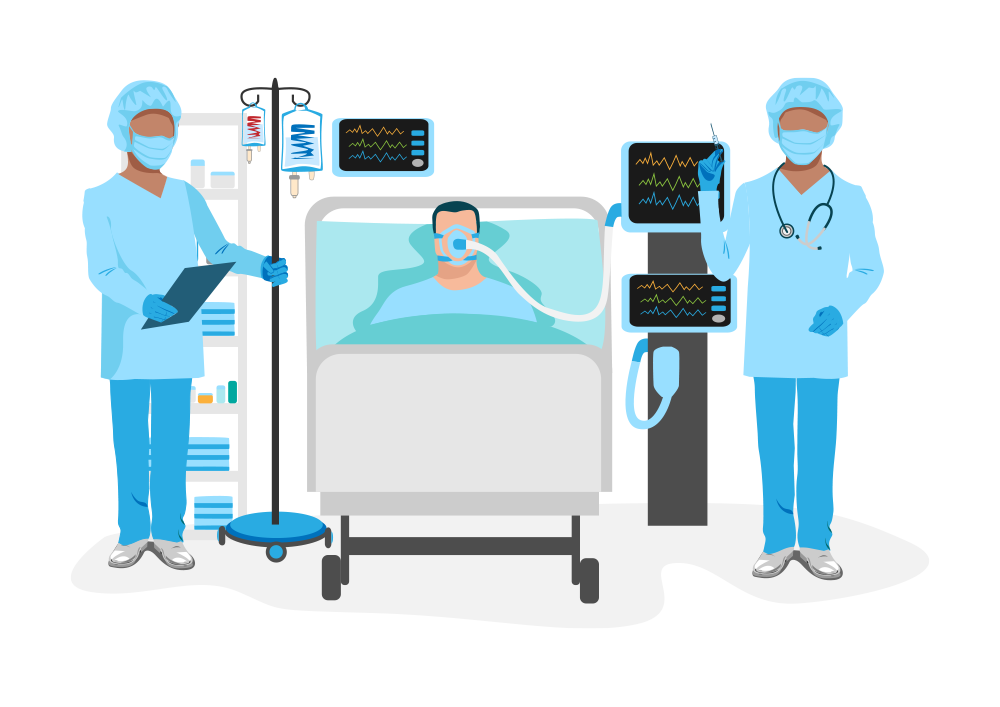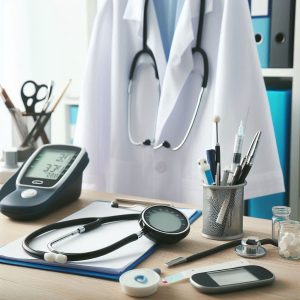This Course Structure is Curated as per the NEP-2020 Guidelines
Course Overview
M.Sc. Critical Care Technology program at Malla Reddy Vishwavidyapeeth, Hyderabad, is a postgraduate course designed to provide advanced training in managing critically ill patients and operating state-of-the-art technologies in intensive care units (ICUs).
This program focuses on equipping students with the theoretical knowledge and hands-on skills from 1st semester itself. The curriculum focuses on advanced critical care techniques, hemodynamic monitoring, ventilator management, and patient stabilization during life-threatening conditions. Students gain hands-on experience in managing ICU workflows, handling emergency situations, and utilizing advanced critical care equipment.
Graduates of this program emerge as ‘Senior Critical Care Technologists’, enabling them to pursue further higher studies & do research in Critical Care Technology along with plenty of job opportunities globally. They are prepared to work in hospitals, ICUs, and trauma centers, playing a vital role in patient recovery and contributing to the delivery of high-quality critical care.

Course Details
Description: 2 Years Degree Program
No. of Seats: 20
No. of Credits: 80 minimum & as specified
- Eligibility
- Curriculum Structure
- Program Outcomes
- Career Enhancement
- Higher Studies
- Job Roles & Progression
- The minimum eligibility is a B.Sc. degree in Critical Care Technology, Paramedical Sciences, Allied Health Sciencesor equivalent with at least 50% aggregate marks from a recognized university.
Semester | Name of the Subject |
Semester 1 | Principles of Critical Care Medicine Advanced Anatomy and Physiology Critical Care Pharmacology Patient Safety in ICU Practical: Patient Triage and Vital Monitoring |
Semester 2 | Ventilator Management Hemodynamic Monitoring Techniques Renal Support and Dialysis in ICU Ethical and Legal Aspects of Critical Care Practical: Advanced Ventilation and Hemodynamic Techniques |
Semester 3 | Advanced Critical Care Procedures Pediatric and Neonatal Intensive Care Research Methodology and Biostatistics Infection Control in ICU Practical: Critical Care Procedures and Infection Control |
Semester 4 | Critical Care Unit Management Emerging Technologies in Critical Care Thesis/Research Project Practical: ICU Operations and Compliance |
- Advanced Patient Monitoring and Triage: Skills in monitoring vital signs, assessing patient conditions, and prioritizing care in critical situations.
- Ventilator and Respiratory Management: Proficiency in managing ventilators, understanding respiratory support needs, and handling complex respiratory cases.
- Hemodynamic Monitoring: Knowledge of monitoring and interpreting hemodynamic parameters for patient assessment in ICUs.
- Infection Control and Safety in ICU: Expertise in infection prevention, control protocols, and maintaining sterile conditions in critical care.
- Pediatric and Neonatal Intensive Care: Skills in providing critical care for pediatric and neonatal patients, including specific interventions for younger populations.
- ICU Management and Compliance: Ability to manage ICU operations, staff coordination, and ensure compliance with healthcare standards.
- Certification in Advanced Ventilator Management: Specialized training in ventilator settings, modes, and troubleshooting in critical care.
- Hemodynamic Monitoring and Interpretation Certification: Focuses on advanced hemodynamic monitoring techniques and interpretation for critically ill patients.
- Infection Control in Critical Care Certification: Covers protocols for infection prevention, control, and safety in ICU settings.
- Pediatric and Neonatal Critical Care Certification: Provides specialized training in caring for critically ill infants and children.
- ICU Management and Leadership Certification: Emphasizes managing ICU operations, coordinating staff, and maintaining compliance standards.
- Ph.D. in Critical Care Medicine or Intensive Care Technology
- Fellowship in Intensive Care or Pediatric Critical Care
- Postgraduate Diploma in Infection Control and ICU Management
- Advanced Certifications in Trauma and Emergency Critical Care
Duration | Roles and Responsibilities | Salary Range |
0-3 years | Critical Care Technician, ICU Technologist | ₹6,00,000 – ₹8,50,000 per annum |
3-5 years | Senior Critical Care Technologist, Respiratory Therapist | ₹8,50,000 – ₹12,00,000 per annum |
5-10 years | ICU Unit Manager, Advanced Critical Care Specialist | ₹12,00,000 – ₹15,00,000 per annum |
10+ years | Director of Critical Care Services, Chief ICU Technologist | ₹15,00,000+ per annum |

Fee Structure Per Academic Year
| Tuition Fee | Miscellaneous Fee | Scholarship | ||
| 200000 ₹ | 15000 ₹ | Above 90% – 40000 ₹ | Between 81-90% – 20000 ₹ | Between 71-80% – 10000 ₹ |




